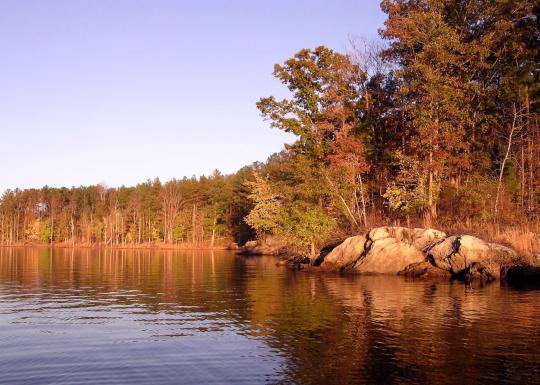New Publications Focus on Coastal Policies, Regulations
A publication from the North Carolina Coastal Resources Law, Planning and Policy Center looks to successful oyster aquaculture efforts in mid-Atlantic states for potential ways to jump-start North Carolina’s industry. Photo by Chuck Weirich.
Nutrient management in North Carolina’s waterways. Family legacy of property ownership. Oyster aquaculture development in Mid-Atlantic states. Recent state legislation affecting coastal resources.
These are all topics covered in recent publications from the North Carolina Coastal Resources Law, Planning and Policy Center, a research, advisory and educational partnership among North Carolina Sea Grant, the University of North Carolina School of Law and the UNC Department of City and Regional Planning. The Center communicates coastal-related development trends and issues through a variety of white papers, journal articles and newsletters.
Here’s a quick look at what the latest publications have to offer.
Published in the Duke Environmental Law & Policy Forum, a publication of Duke Law School, “Nutrient Pollution in North Carolina’s Waters: The Innovation of Numeric Criteria as a Management Strategy,” examines the development and implementation of numeric nutrient criteria, or NNC. This is a strategy administered by the U.S. Environmental Protection Agency for protecting and restoring watersheds from nutrient pollution.
Currently, state officials in North Carolina are working with the EPA and other stakeholders to adopt NNC. The article outlines these efforts, along with the challenges of developing NNC for the state’s waterways. It also provides a comparison of North Carolina’s efforts, including regulatory and policy factors, to those in Florida, New Hampshire and Virginia.
The article is written by Lisa Schiavinato, former co-director of the Center who was North Carolina Sea Grant’s coastal law, policy and community development specialist. Schiavinato now is an extension director of California Sea Grant. Tyler O’Hara, a former Center law fellow and recent graduate of the University of North Carolina School of Law, is a co-author.

A white paper, “Splitting Heirs: The Challenges Posed by Heirs’ Property Ownership to Coastal Resilience Planning,” discusses the ownership status and potential concerns of heirs’ property, a form of ownership common in African American communities in the rural South, including North Carolina.
This family-based property ownership often results in a lack of clear title. The paper discusses potential legal issues arising from this type of ownership and provides potential strategies for safeguarding the rights of heirs’ property owners through state and local initiatives.
The paper is written by previous Center law fellows Jack Williams, Rebecca Neubauer and Rory Fleming, as well as Schiavinato.
The Center also offers two recent issues of Legal Tides — a free newsletter that examines legal, policy and planning issues related to the state’s coastal areas.

The Autumn 2016 issue, titled “Looking to the Future of Oyster Aquaculture in North Carolina: A Comparison of Regulations Among Mid-Atlantic States” examines the state’s oyster aquaculture industry in comparison to fast-growing industries in Virginia, Maryland and New Jersey.
Factors such as investments in aquaculture science and technology, ecosystem conditions, and regulatory differences are considered. The article was written by Palmer Hilton, a current research law fellow at the Center, Schiavinato, and Jane Harrison, coastal economic specialist at North Carolina Sea Grant.
And if you haven’t already, be sure to check out the Summer issue, “Bills Passed During the 2016 Short Session of the North Carolina General Assembly Affecting Coastal Resources Use and Conservation.”
Written by Williams, a 2016 Center fellow, the issue cites new legislation regarding agriculture, water and energy. These include implications for industrial hemp, drinking water and coal ash impoundments, nutrient management for Falls and Jordan lakes, and requirements for next season’s beach bingo.
For more publications or additional information, visit the North Carolina Coastal Resources Law, Planning and Policy Center’s website.
- Categories:


